
halal
awareness in Brazil (Photo: Halal Focus)" width="230" height="230" /> El Tarrass: working to spread halal awareness in Brazil (Photo: Halal Focus)São Paulo, 20 Muharram 1437/2 November 2015 (MINA) – Finding food bearing the halal label on Brazilian supermarket shelves is not an easy task. Very few items carry the attestation that their consumption is allowed to Muslims. This, however, doesn’t mean to say such goods are not sold around these parts. There are some 200 halal products available on the Brazilian market. The majority of them, however, are not halal-labeled.
According to the Federation of Muslim Associations in Brazil (Fambras), the coordinator of the Brazilian Islamic Center for Halal Foodstuffs (Cibal-Halal), in charge of issuing the halal label, domestic usage of the label is optional in Brazil. “We are working to encourage it. I believe that by the second half of 2016, we will have several brands carrying the label,” says Development manager Dib Ahmad El Tarrass, Halal Focus quoted by Mi’raj Islamic News Agency (MINA) as reporting.
Brands offering certified products at Brazilian supermarkets include Nestlé, Ferrero, Predilecta, Real Café, Café Iguaçu, Café Pelé, Piracanjuba, Mococa, Quatá, Caravelas, Pic Nic, Carreteiro, Elegê, Sadia and Batavo. However, it’s virtually impossible to know which of these brands’ products are halal. For the sake of illustration, during a simple search in a supermarket in São Paulo, this ANBA reporter found the label only on condensed milk by Nestlé, standard Minas-type cheese by Quatá, and sugar by Caravelas.
To make life easier for Muslim consumers in Brazil, El Tarrass says that Fambras will soon make a list of certified products available on its website, which should go online soon. “On our new website, we will have a list to let Muslim consumers know which [foodstuffs] are guaranteed by Fambras, even though they may be unlabeled.”
Also Read: Trump to Meet with NYC Mayor-Elect Mamdani at White House on Friday
According to the executive, Muslim consumers are not the only ones who contact the association to find out where halal products are available. “Besides the consumers, hotels, restaurants, catering companies and even the Brazilian Army have sought us out. Queries increased during the FIFA World Cup held in Brazil,” he says. The country welcomed two teams from Muslim countries for the world football championship last year: Algeria and Iran.
According to El Tarrass, domestic retail sales are not part of the market strategies of most companies seeking halal certification. In Brazil, the goal of certified manufacturers is to supply raw material for companies that sell halal products to other countries. “At this time, out of 115 certified manufacturers, 60% are suppliers of raw material to other export-oriented manufacturers,” he explains.
Domestic products aside, some imported goods available in Brazil do bear the halal stamp. “For instance, the Spanish olive oil Borges is certified by a halal institution in Germany, and Jacker potato chips are certified by Jakin Malaysia,” says El Tarrass.
In stores throughout Brazil, however, these products are scattered about, and consumers must look for them themselves. According to the Fambras manager, the organization plans to embark on an awareness campaign so that retailers will set halal goods on dedicated shelves.
Also Read: Report Exposes Canada’s Role as ‘Weapons Transit Corridor’ for Israel
We have halal here
The 2010 Census of the Brazilian Institute of Geography and Statistics (IBGE) showed that at the time, there were some 35,000 Muslims living in Brazil. However, Muslim organizations calculate that this is an underestimation. “Islamic institutions estimate 1 million [Muslims in Brazil],” says El Tarrass. Even though there is no consensus regarding the potential of the halal market in the country, some companies and institutions are already working to meet the needs of consumers who are followers of Islam.
Caravelas sugar: halal seal on package sold to Brazilians
Usina Colombo, the manufacturer of Caravelas sugar, for one, is certified since 2008 and its sugar packages sold domestically carry the halal label. “In seeking to set ourselves apart in the market, we decided to use the halal stamp, and it also makes life easier for Muslim consumers when it comes to buying Caravelas sugar,” says Industrial Quality coordinator Walter Cesar Bertoncello.
Also Read: Trump Designates Saudi Arabia as Major Non-NATO Ally in Historic Defense Pact
At supermarkets, Caravelas sugar’s crystal and refined varieties are both halal-labeled. The company also attends events to advertise its sugar to Muslim consumers. “We go to certified product exhibitions held during Cibal Halal events, as well as online events on the Cibal Halal website,” Bertoncello claims.
At the Arahmah mosque, in São Paulo’s Santo Amaro neighborhood, there’s a butcher shop where Muslims can buy several halal beef and chicken cuts purchased directly from meat packer Mondelli.
“My customers only buy their meat at the mosque. These people used to go all the way to Brás [another neighborhood], where they have a butcher shop with a slaughterhouse in it,” explains Mussaab El Orra, a member of the mosque, regarding the decision to sell halal meat to the mosque-goers. He says the butcher shop in Brás didn’t have enough meat cuts available to cater to all customers, so he decided to deal directly with a slaughterhouse.
El Orra says the affair was discussed with the mosque’s board, which decided to buy freezers in order to store the meat and sell it. He paid a visit to Mondelli’s facilities himself and then struck the partnership.
Also Read: Saudi Arabia to Boost US Investments to $1 Trillion: Crown Prince
At this time, the mosque buys roughly 250 kilograms of meat per week to sell to its clients. “I buy meats such as various beef cuts and chicken. The profit margin is only 10% to 20%, just to pay the mosque’s expenses, such as the power bill,” says El Orra.
The mosque’s butcher shop opens after prayer on Friday and after evening prayers the rest of the week. Although demand from Muslims for halal meat is relevant, El Orra claims advertisement is lacking. “In Santo Amaro alone, there are 1,000 Muslim households that could be buying [meat at the mosque],” he points out.
For companies that are not investing in promotion of their halal products yet, El Tarrass of Fambras notes that birth rates among Muslims are higher than for Western populations, i.e. it is a rapidly growing demographic, and they are loyal to the brands they deem fit for consumption. (T/P010)
Mi’raj Islamic News Agency (MINA)
Also Read: New York Mayor-Elect Vows to Uphold ICC Arrest Warrant Against Netanyahu
halal-is-available-on-the-brazilian-market/">http://halalfocus.net/halal-is-available-on-the-brazilian-market/
Also Read: Trump Considers F-35 Jet Sale to Saudi Arabia





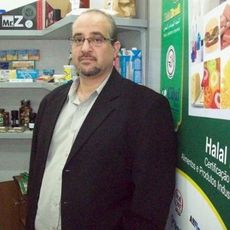




![Israeli tanks and APC’s gather by the Israeli – Lebanese border. Amid Israel’s escalating campaign against Hezbollah in Lebanon on September 30, 2024. [Erik Marmor/Getty Images]](https://en.minanews.net/wp-content/uploads/2024/10/IMG_20241001_203226-300x197.jpg)




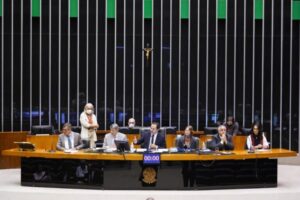

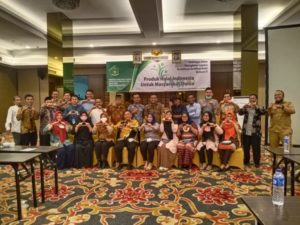
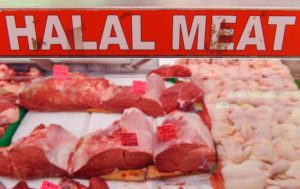
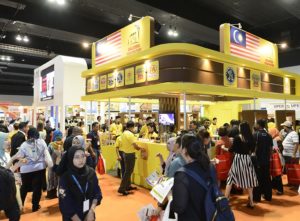
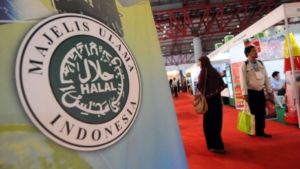









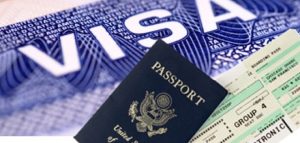



 Mina Indonesia
Mina Indonesia Mina Arabic
Mina Arabic